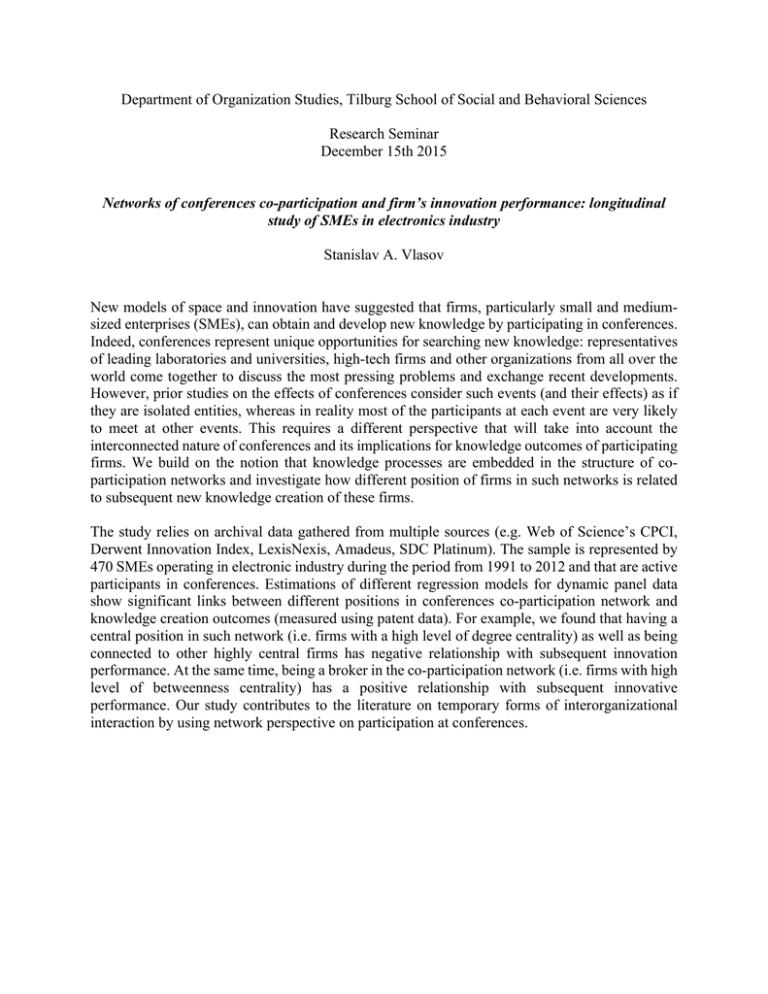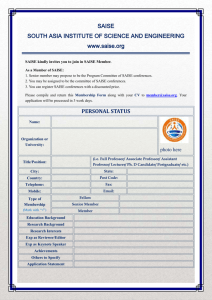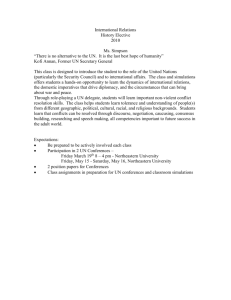Department of Organization Studies, Tilburg School of Social and Behavioral... Research Seminar December 15th 2015
advertisement

Department of Organization Studies, Tilburg School of Social and Behavioral Sciences Research Seminar December 15th 2015 Networks of conferences co-participation and firm’s innovation performance: longitudinal study of SMEs in electronics industry Stanislav A. Vlasov New models of space and innovation have suggested that firms, particularly small and mediumsized enterprises (SMEs), can obtain and develop new knowledge by participating in conferences. Indeed, conferences represent unique opportunities for searching new knowledge: representatives of leading laboratories and universities, high-tech firms and other organizations from all over the world come together to discuss the most pressing problems and exchange recent developments. However, prior studies on the effects of conferences consider such events (and their effects) as if they are isolated entities, whereas in reality most of the participants at each event are very likely to meet at other events. This requires a different perspective that will take into account the interconnected nature of conferences and its implications for knowledge outcomes of participating firms. We build on the notion that knowledge processes are embedded in the structure of coparticipation networks and investigate how different position of firms in such networks is related to subsequent new knowledge creation of these firms. The study relies on archival data gathered from multiple sources (e.g. Web of Science’s CPCI, Derwent Innovation Index, LexisNexis, Amadeus, SDC Platinum). The sample is represented by 470 SMEs operating in electronic industry during the period from 1991 to 2012 and that are active participants in conferences. Estimations of different regression models for dynamic panel data show significant links between different positions in conferences co-participation network and knowledge creation outcomes (measured using patent data). For example, we found that having a central position in such network (i.e. firms with a high level of degree centrality) as well as being connected to other highly central firms has negative relationship with subsequent innovation performance. At the same time, being a broker in the co-participation network (i.e. firms with high level of betweenness centrality) has a positive relationship with subsequent innovative performance. Our study contributes to the literature on temporary forms of interorganizational interaction by using network perspective on participation at conferences.

![[Today’s Date] [Your Supervisor’s First Name] [Your School or District’s Name]](http://s2.studylib.net/store/data/010451343_1-ed5410b4013e6d3fbc1a9bbd91a926a9-300x300.png)





